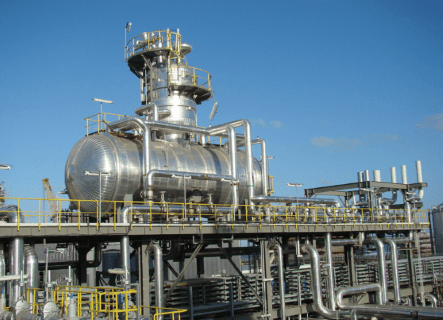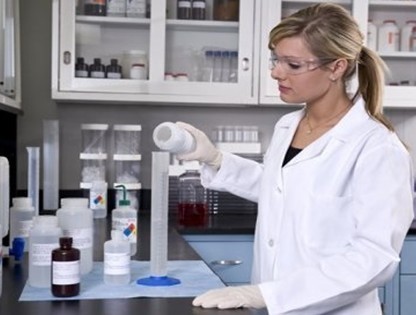COURSE OVERVIEW
PROCESS & CHEMICAL ENGINEERING

OVERVIEW
| COURSE TITLE | : | PE0114 : Process Plant Troubleshooting & Engineering Problem Solving |
| COURSE DATE | : | Jan 14 - Jan 18 2024 |
| DURATION | : | 5 Days |
| INSTRUCTOR | : | Mr. Mohammad Hamami Days |
| VENUE | : | Dubai, UAE |
| COURSE FEE | : | $ 5500 |
| Request For Course Outline | ||
OTHER SCHEDULED DATES
| Date | : | Feb 04 - Feb 08 (5 Days) | Location | : | Istanbul, Turkey | Classroom Fee (US$) | : | $ 6000 | Course Info |
| Date | : | Mar 03 - Mar 07 (5 Days) | Location | : | Doha, Qatar | Classroom Fee (US$) | : | $ 6000 | Course Info |
| Date | : | Apr 21 - Apr 25 (5 Days) | Location | : | Doha, Qatar | Classroom Fee (US$) | : | $ 6000 | Course Info |
| Date | : | May 06 - May 09 (4 Days) | Location | : | Abu Dhabi, UAE | Classroom Fee (US$) | : | $ 4500 | Course Info |
| Date | : | Jul 07 - Jul 11 (5 Days) | Location | : | Dubai, UAE | Classroom Fee (US$) | : | $ 5500 | Course Info |
| Date | : | Aug 12 - Aug 15 (4 Days) | Location | : | Dubai, UAE | Classroom Fee (US$) | : | $ 4500 | Course Info |
| Date | : | Nov 03 - Nov 07 (5 Days) | Location | : | Istanbul, Turkey | Classroom Fee (US$) | : | $ 6000 | Course Info |
| Date | : | Nov 18 - Nov 21 (4 Days) | Location | : | Al Khobar, KSA | Classroom Fee (US$) | : | $ 4500 | Course Info |
Course Description
This practical and highly-interactive course includes various practical sessions and exercises. Theory learnt will be applied using our state-of-the-art simulators. Modern industrial processes are large, complex and have a high degree of interaction between both dependent and independent variables. This makes problem solving difficult and leads to the ?disappearing problem? syndrome. Problems often disappear without being solved only to reappear again. This course deals with a unique approach of combining cause and effect problem solving thinking with formulation of theoretically correct working hypotheses to provide rapid and effective problem solving techniques for the process industry.This course presents an approach that emphasizes the classical problem solving approach (defining the sequence of events) with the addition of the steps of formulating a theoretically correct working hypothesis, providing a means to test the hypothesis, and providing a foolproof means to eliminate the problem. The initial part of the course focuses on defining the problem that must be solved and obtaining the location, time and quantity based specifications of the problem. The initial part of the course is suitable for all engineering disciplines as well as non-engineers. The second part of the course deals with the utilization of chemical engineering fundamentals to develop a technically correct working hypothesis that is the key to successful problem solving. The primary emphasis is on pragmatic calculation techniques that are theoretically correct. These techniques have been developed by the course Instructor in 30+ years of industrial experience. Using these techniques, theoretically correct working hypotheses can be developed in an expedient fashion. The course includes both sample problems as well as problem working sessions to allow the participants to develop confidence with the approach. The attendees are encouraged to bring real problems that they are working to use in discussions on the last day of the course. These problems should be of a non-confidential nature that can be discussed without violation of any confidentiality restrictions. link to course overview PDF
TRAINING METHODOLOGY
This interactive training course includes the following training methodologies as a percentage of the total tuition hours
LecturesWorkshops & Work Presentations
Case Studies & Practical Exercises
Videos, Software & Simulators
In an unlikely event, the course instructor may modify the above training methodology before or during the course for technical reasons.
VIRTUAL TRAINING (IF APPLICABLE)
If this course is delivered online as a Virtual Training, the following limitations will be applicable
| Certificates | : | Only soft copy certificates will be issued to participants through Haward’s Portal. This includes Wallet Card Certificates if applicable |
| Training Materials | : | Only soft copy Training Materials (PDF format) will be issued to participant through the Virtual Training Platform |
| Training Methodology | : | 80% of the program will be theory and 20% will be practical sessions, exercises, case studies, simulators or videos |
| Training Program | : | The training will be for 4 hours per day starting at 09:30 and ending at 13:30 |
| H-STK Smart Training Kit | : | Not Applicable |
| Hands-on Practical Workshops | : | Not Applicable |
| Site Visit | : | Not Applicable |
| Simulators | : | Only software simulators will be used in the virtual courses. Hardware simulators are not applicable and will not be used in Virtual Training |
RELATED COURSES

PE0620 : Polyethylene & Polypropylene Manufacturing & Process Troubleshooting
- Date : May 13 -May 16 / 3 Days
- Location : Al Khobar, KSA
- Course Details Register

PE0197-4D : Troubleshooting Distillation Towers
- Date : Dec 19 -Dec 24 / 3 Days
- Location : Doha, Qatar
- Course Details Register

PE0020 : Process Equipment Design, Sizing, Selection, Applications & Troubleshooting
- Date : May 20 -May 23 / 3 Days
- Location : Dubai, UAE
- Course Details Register

PE0625 : Introduction to Polypropylene Technology
- Date : May 20 -May 23 / 3 Days
- Location : Istanbul, Turkey
- Course Details Register
